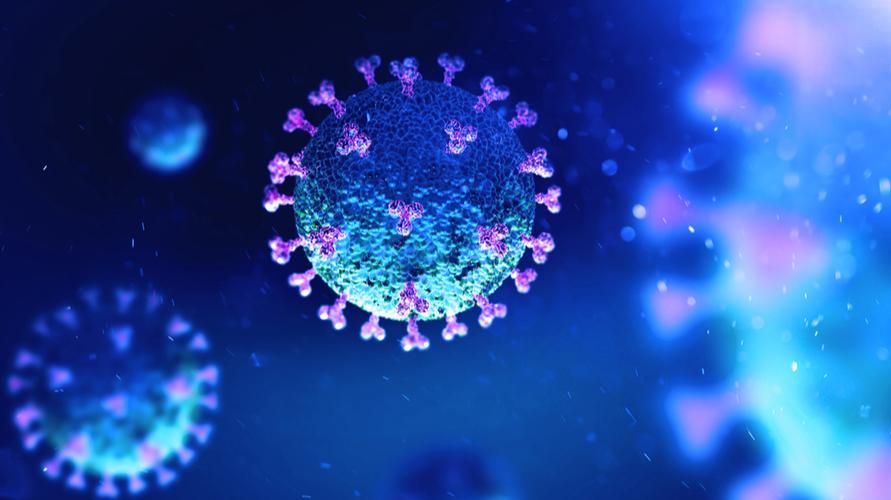Post-COVID-19 management in the context of patient recovery is a long and complex process that varies from person to person. Some people recovering from COVID still have difficulty with physical, emotional, and cognitive functions. There are also those who still experience the same symptoms as when the COVID test was positive. Therefore, some patients require post-COVID therapy for their condition.
COVID-19 Disease, Why Are Some Patients in Danger and Some Others Recovered?
COVID-19, as a new disease, still requires a lot of research to be better understood. For instance, we need more research about the effects of this disease, which is different for everyone. For some people, COVID is so dangerous that it can be life-threatening. For others, however, COVID is like a common cold that does not require special treatment.
To date, there are several factors that influence the severity of COVID in patients:
Age
Compared to younger patients, middle-aged and older people are more likely to develop symptoms, be hospitalized, and die from COVID. This goes hand in hand with the fact that the immune system of the elderly is less effective in fighting viral infections.
Underlying condition
Patients with severe or fatal COVID-19 symptoms are more likely to have at least one serious illness, such as diabetes, hypertension, obesity, cardiovascular disease, asthma, kidney disease, or chronic obstructive pulmonary disease. The disease makes it more difficult for the vital organs to resist the pressure of a viral infection. People with weakened immunity are also more likely to get seriously infected with COVID because their immune systems are compromised.
Smoking
Smoking habits make the body more susceptible to coronavirus infection. It is because exposure to cigarette smoke over time may weaken the immune system, damage the tissues of the airways, and cause chronic inflammation. Cigarette smoke is also associated with many health problems, including hardening or narrowing of the arteries and damage to the lungs, which can worsen the symptoms of COVID.
Exposure dose
The dose or amount of coronavirus that infects a person is also thought to affect the severity of the disease. The higher the dose of the virus, the more likely it is that the patient will develop severe symptoms.
Virus strain
Coronaviruses can mutate rapidly to form different strains of the virus. Some strains are able to spread very easily and cause a more serious disease, such as the Delta variant.
The above risk factors should be taken into consideration during COVID treatment. However, more studies on the effects of COVID are still needed to provide stronger evidence for these factors.
What Are the Complications After Recovering from COVID-19?
Some cured patients may not fully recover from COVID. There are many long-term symptoms, including fatigue, shortness of breath, cough, body aches, and chest pain. Other conditions include cognitive problems, difficulty concentrating, headaches, rapid heartbeat, and intermittent fever. This syndrome is recognized as long COVID.
Several patients have also reported complications after recovering from COVID, including kidney problems, neurological issues, hair loss, skin rashes, anxiety, and depression.
COVID, as a disease that affects the respiratory system, is more likely to cause respiratory complications, especially in the lungs. The lungs may be damaged and other permanent problems may occur. Even a mild case of COVID may cause people who have recovered from COVID to suffer from breathlessness during normal activities. COVID treatment may help patients to practice breathing techniques and to restore lung function.
What to Do to Get Fit Again after COVID Infection?
The effects of COVID are different for everyone. Therefore, each person’s treatment after COVID infection to get back in shape after recovering from COVID is also different. There are a number of post-COVID therapy programs that can be tailored to the patient’s condition, including if there are prolonged symptoms of COVID. Patients are required to have doctor consultation and examination to determine the appropriate treatment.
Patients can resume exercising to get fit again. However, doctors generally do not recommend patients to exercise immediately as before being infected with COVID. Their body must first adapt to the existing conditions so it doesn’t drop due to the effects of exercise intensity.
As part of post-COVID treatment, patients may first undergo a light exercise to get fit again. For example, jogging either on the treadmill or outdoors. As the body gets used to the stress of exercise, gradually increase the intensity of the exercise by moving on to more challenging sports such as running, cycling, or swimming. Patients will be asked to listen to their body so they know when to halt their activity and see a doctor if their condition worsens during exercise.
Is It Necessary to Get a Post-Covid Medical Check-up?
The coronavirus that causes COVID is known to damage not only the respiratory system, but also other vital organs. In some cases, the effects are severe and long-lasting even if the patients have been declared cured of COVID. This is why patients are encouraged to undergo a post-COVID medical, especially if they have previously had a serious illness with COVID.
There are several tests that will help determine your overall health. For instance:
- Antibody test to find out the number of antibody cells that have been formed to anticipate the risk of contracting COVID again in the future.
- Cholesterol and glucose test to see if your cholesterol and glucose levels rise or fall after being exposed to COVID. This test is especially important for people with serious illnesses such as diabetes and heart disease.
- Neurological function tests to check for neurological impairment. This is because many patients complain of neurological and psychological issues that last for weeks, even months after recovering from COVID.
- Testing for vitamin D to see if your body has enough vitamin D to help you recover faster. Your doctor will prescribe vitamin D supplements if it is deemed as necessary.
- Chest computed tomography to look at the condition of the lungs after COVID, whether they have recovered or still need treatment for a viral infection.
- A heart test to look for heart problems because there is a risk of heart inflammation from COVID infection. This test is especially important if you have a history of heart disease.
This series of tests is optional. However, based on the results of the medical check-up, post-COVID treatment can be more easily targeted to the functions or organs of the body that have problems with complications or long-term effects of COVID.
Is It Necessary to Do Post-COVID Physiotherapy Exercise?
The purpose of physiotherapy exercise is to help patients increase their activity and improve their physical condition following a certain treatment. In terms of COVID treatment, physical therapy is necessary for patients who still have difficulty recovering completely from the disease.
COVID patients who previously had to be treated for long periods in the intensive care unit with a ventilator were more likely to require physical therapy. These patients may have impaired language, memory and brain function. However, even patients who do not experience severe symptoms may require physiotherapy after COVID.
Some patients who recover from COVID-19 still often feel weak, have difficulty walking, and lose a lot of muscle mass. A physical therapist can help them regaining their strength and flexibility using an exercise program tailored to their needs. Patients who still experience symptoms related to the respiratory system may also undergo physiotherapy to develop breathing exercise and strengthen the respiratory muscles.
The point of physiotherapy is to help improve the patients’ quality of life. Patients should first consult a physician to determine which physiotherapy program is required in post-COVID treatment.



